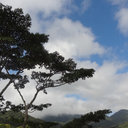Attenuating effect of Ginsenoside Rb1 on LPS-induced lung injury in rats.
Ключевые слова
абстрактный
BACKGROUND
Sepsis causes neutrophil sequestration in the lung which leads to acute lung injury (ALI). Radix Ginseng (RG), a traditional herb used as herbal remedy in eastern Asia for thousands of years, which has been traditionally used in China to improve blood circulation and ameliorate pathological hemostasis. This study investigated whether Ginsenoside Rb1, the main components of RG, can attenuate ALI induced by LPS.
METHODS
In vivo, 30 male Wistar rats were divided into three groups (n = 10 each groups) on the basis of the reagent used, which were subjected to LPS injection with or without Ginsenoside Rb1 (5 mg/kg) treatments to induce ALI model. Lung injury was assessed by pulmonary histology, lung wet-weight to dry-weight (W/D) ratio, the number of myeloperoxidase (MPO) positive cells, immunohistochemical analysis of intercellular adhesion molecule-1 (ICAM-1), gene expression of ICAM-1, ultrastructure changes of pulmonary microvasculature, concentration of inflammatory markers and in plasma. In vitro, pulmonary microvascular endothelial cells (PMVECs) were stimulated with LPS in the presence and absence of Ginsenoside Rb1 (50 mM), nuclear factor-κB (NF-κB) p65 was measured by immunocytochemistry staining and western blotting.
RESULTS
Infusion of LPS induced lung injury, in vivo, as demonstrated by pulmonary edema with infiltration of neutrophils and hemorrhage, the increase in lung W/D ratio, the number of MPO positive cells, the level of inflammatory markers such as TNF-α, MCP-1 and IL-8, enhanced expression of ICAM-1 and ICAM-1 gene. Moreover, resulted in the changes of intercellular junctions in the endothelial cells of pulmonary microvasculature. In vitro, the significant increased release of NF-κB p65 and its subsequent translocation into the nucleus in PMVECs were observed. In contrast, Ginsenoside Rb1 treatment significantly ameliorated the LPS-induced lung injury, as judged by the marked improvement in all these indices.
CONCLUSIONS
These results indicate that Ginsenoside Rb1 attenuated LPS-induced lung injury through an inhibition of the inflammatory signaling pathway, besides the direct inhibitory effect on proinflammatory molecules.



